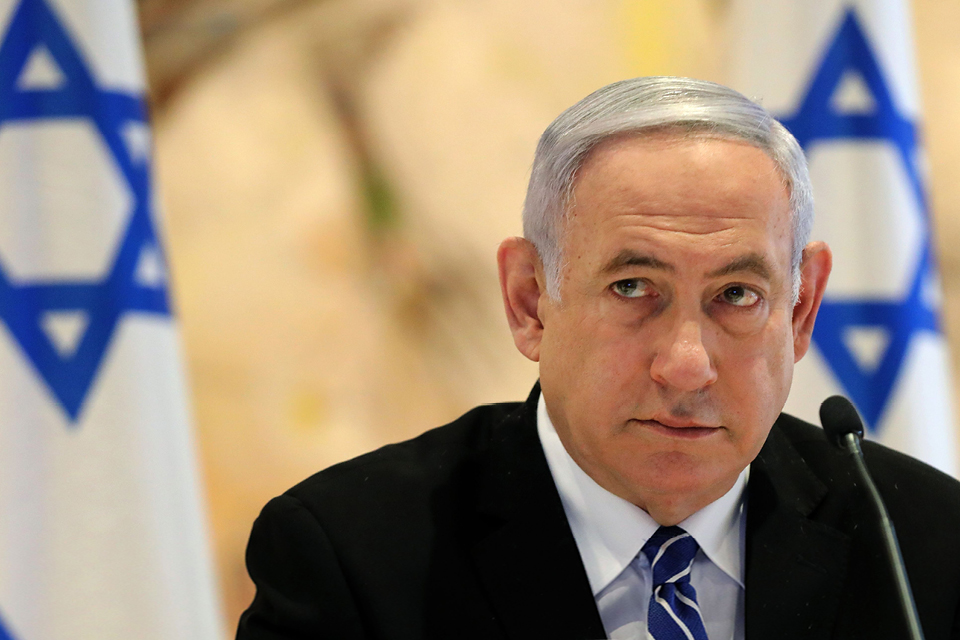What's next for Israel after Netanyahu's ouster as Prime Minister?
 Photo/Getty Images
Photo/Getty ImagesIsrael Prime Minister Benjamin Netanyahu
Benjamin Netanyahu has been ousted as Israel’s Prime Minister after a no-confidence vote by the Knesset. Netanyahu’s historic and regularly controversial 12-year political reign makes him the longest serving Premier in Israel’s history.
With Naftali Bennett ascending to Prime Minister, Israel may be on the cusp of change.
Brandeis professor Yehudah Mirsky, a former U.S. State Department official and an expert on Israeli politics, is currently conducting research in Jerusalem and spoke to BrandeisNOW about Netanyahu’s departure and what it means for all levels of Israeli society.
What are some immediate areas of attention for Naftali Bennett now that Benjamin Netanyahu’s government will change over?
There are almost too many to count. There’s a forthcoming investigation of a recent tragedy at a pilgrimage site in Meron in which 45 people lost their lives, and that will entail a range of questions about governance in general, particularly the seeming autonomy of much of the ultraorthodox sector. And there needs to be a government budget after two years without one.
Bigger picture issues also include repairing relations with the U.S., especially the Democratic Party and American Jewry, plus easing Israeli society out of the economic damage wreaked by COVID-19, forming better working relationships with the Palestinian authority, improving the civic climate overall and formulating a policy reponse to the U.S.’ seeming re-entry into the Iran nuclear deal.
In what ways are Bennett and Netanyahu similar? Aside from their temperaments and approaches to politics, are there significant differences?
The similarities are in their fundamentally hawkish stances on security and aggressively pro-free market approaches to economics. They both served as officers in the same elite military units. Among the differences are that Bennett, while not a religious leader or thinker as such, is religiously observant and the first Prime Minister to wear a kippah. While Bennett differs politically from much of the U.S. Jewry, he fundamentally respects them.
Unlike Netanyahu, whose father was a stalwart right-wing Zionist intellectual dating to pre-state days, Bennett is the child of North American immigrants and successful high tech entrepreneur, and represents a real generational shift.
Netanyahu has vowed to return to power, but does he have a clear path to regaining control in the future?
You can be sure that as we speak Netanyahu is hard at work planning how best to use his considerable political talents to return to power. There are some murmurs of potential replacements in his Likud Party but he’s made clear he is not relinquishing power. Of course, much depends on the outcome of the criminal trials against him which were at the heart of the political turmoil around him in recent years. And the new governing coalition is both numerically narrow and ideologically fractured, and Bennett’s voters never imagined this was what they were voting for, which leaves much room for political skirmishing, and little room for error.
What is the single most significant change to Israel that having a new prime minister will bring?
We need to remember that there are, in essence, two new Prime Ministers: Bennett is sitting in the Prime Minister’s seat because Yair Lapid, the undisputed leader of the anti-Netanyahu coalition, whose party received 17 Knesset seats to Bennett’s six, magnanimously let Bennett become Prime Minister and take the first rotation. It’s really quite remarkable, and politics aside, sets a very different tone. Also, the presence of an Arab party in the governing coalition is a real first.
The absence of Netanyahu from the Prime Minister’s chair, and the end of his domination of the news cycle and public agenda, is itself momentous. While the new coalition took shape as a motley assortment of “anyone but Netanyahu,” along the way it’s begun to take on its own character as some sort of hopeful return to norms of governance, substantive social policy and maybe even a slight calming of the fevered political climate.
Has there been any consensus among Israelis about what such a change in leadership represents?
For opponents of Netanyahu, there wasn’t just a shared desire to be rid of him but also a sense that things in Israel have been stuck for a while and they could now get unstuck.
Things have been stuck because it’s been a time of political crisis. The country has had two years of elections and no budget. Netanyahu has been under indictment and has been working to pass legislation to make himself immune from prosecution.
The government has also not passed a budget in two years, so there are many acting positions in government, with the handling of COVID-19 before the vaccines widely seen as shambolic. There is also progress to be made with infrastructure, underserved Israelis, and better integrating Israeli Arabs and the ultraorthodox into society.
This change in Prime Minister has occurred on the heels of the recent acts of aggression between Israel and Palestine. What might the Bennett government do for Israeli-Palestinian relations?
The new government is unlikely to make any significant peacemaking moves, though there is a desire to improve day-to-day relations with the Palestinian Authority. I also think there’s a desire to tone down the combative rhetoric, and in general many Israeli’s are really not interested in clashing with Palestinians and ruling with an iron hand.
Categories: General, Humanities and Social Sciences, International Affairs, Research





